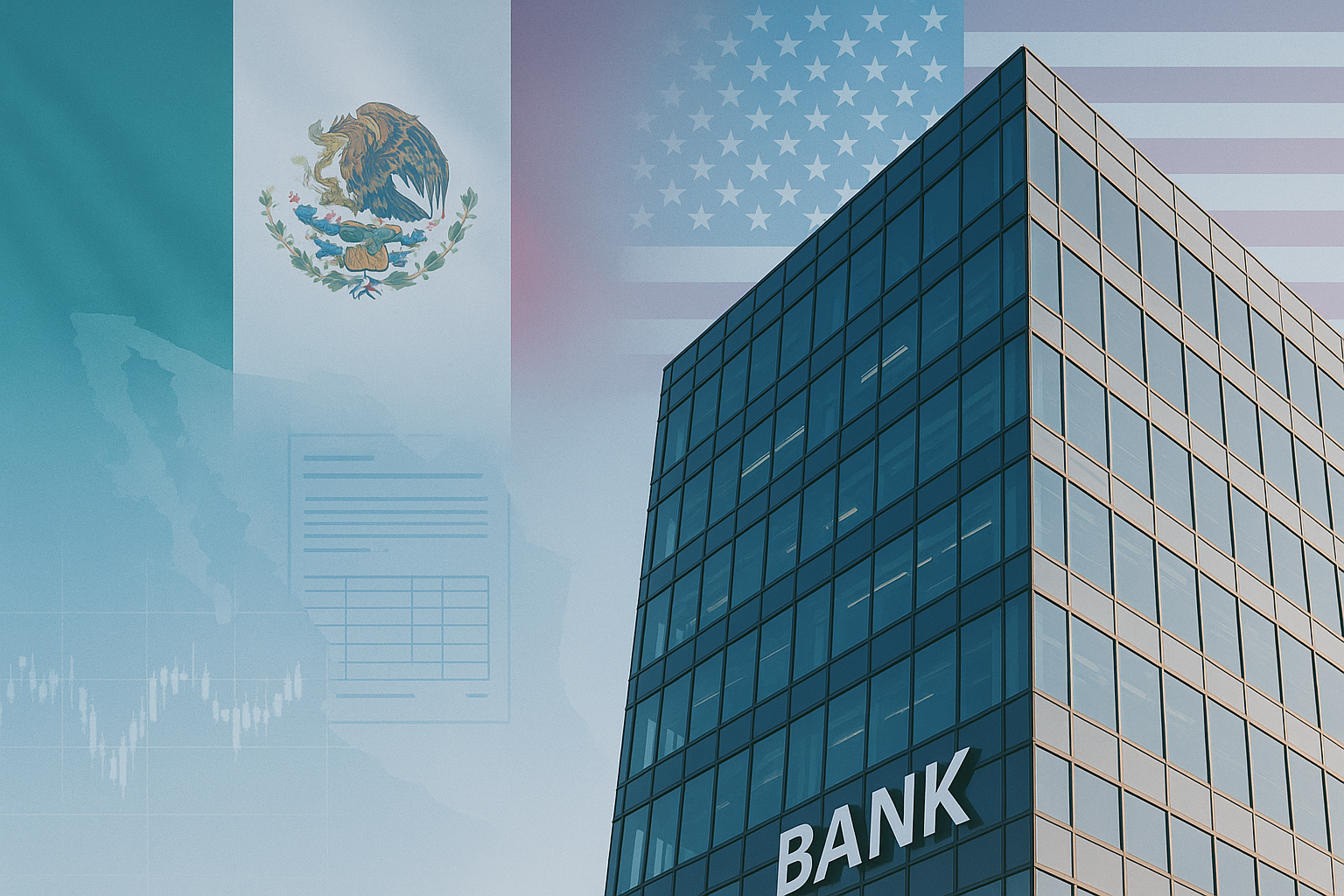In an unprecedented move, Mexico’s National Banking and Securities Commission (CNBV) has stepped in to temporarily oversee operations at CIBanco SA and Intercam Banco SA following serious money-laundering allegations by U.S. authorities. The intervention, announced on June 26, 2025, aims to protect customers and stabilize the institutions amid accusations that they facilitated financial transactions linked to drug cartels. This development has sent ripples through Mexico’s financial sector, raising concerns about reputational damage, client confidence, and potential impacts on cross-border financial operations.
The CNBV’s decision to replace the management of CIBanco and Intercam was prompted by the U.S. Treasury’s Financial Crimes Enforcement Network (FinCEN) issuing orders that restrict these banks, along with brokerage Vector Casa de Bolsa SA, from certain fund transmissions with U.S. entities. The orders, set to take effect 21 days after publication in the U.S. Federal Register, cite potential violations of anti-money laundering (AML) regulations. Vector, a non-deposit-holding brokerage, is exempt from such intervention.
The CNBV stated, “This action is to safeguard the rights of savers and clients, given the potential implications of the U.S. Treasury’s measures.” The intervention is a rare step in Mexico, where banking scandals have historically eroded public trust, notably during the 1990s crisis involving related-party loans and HSBC’s $881 million drug money laundering scandal in 2012.
CIBanco issued a statement pledging full cooperation with both Mexican and U.S. regulators, emphasizing that client funds are protected under Mexican law. “We are committed to addressing any concerns identified by the CNBV and FinCEN,” the bank said. Intercam, which denied the allegations on June 25, 2025, has not issued further comments. Meanwhile, Vector, linked to a political ally of former President Andres Manuel Lopez Obrador, faces similar restrictions but is not under CNBV oversight due to its non-banking status.
Industry and Government Response
Mexico’s banking lobby, the Asociacion de Bancos de Mexico (ABM), moved quickly to reassure the public, stating, “The intervention ensures operational continuity and regulatory compliance without destabilizing Mexico’s financial system.” The ABM highlighted that the affected institutions are relatively small, with limited systemic impact.
President Claudia Sheinbaum, who took office in October 2024, responded cautiously, noting, “I’ve seen no concrete evidence supporting the U.S. designations. We will work with our regulators to ensure transparency.” Her stance reflects Mexico’s sensitivity to U.S. interventions in its financial sector, particularly given the historical context of cross-border tensions over drug-related issues.
Industry leaders have expressed mixed sentiments. Eduardo Osuna, CEO of BBVA Mexico, commented, “While the allegations are concerning, the CNBV’s swift action demonstrates Mexico’s commitment to robust financial oversight. We expect minimal disruption to the broader banking ecosystem.” Similarly, Raul Martinez-Ostos, Chairman of Barclays Mexico, noted, “The focus now is on restoring trust. These banks must act transparently to mitigate reputational risks.”
However, some experts warn of broader implications. Haris Khurshid, Chief Investment Officer at Karobaar Capital, remarked, “This is a reputational blow to Mexico’s banking sector. Beyond client outflows, we could see increased compliance costs and scrutiny on cross-border transactions.” He added that while Mexico’s economic fundamentals remain strong, with the peso gaining for four consecutive days, bank stocks may face short-term pressure.
Historical Context and Market Implications
Mexico’s banking sector has faced multiple scandals, from the 1995 Tequila Crisis, which led to widespread bank failures, to HSBC’s 2012 AML violations. These incidents have made Mexicans wary of financial institutions, with trust already fragile. The current allegations against CIBanco, Intercam, and Vector—known for their foreign exchange operations and catering to affluent clients—could exacerbate these concerns.
Data from the Bank of Mexico shows that CIBanco and Intercam collectively hold less than 3% of the country’s banking assets, limiting systemic risk. However, their prominence in foreign exchange and wealth management makes them critical players in niche markets. For instance, Intercam’s exchange-traded funds (ETFs) are popular among retail investors, while CIBanco’s nightly market analysis on Milenio TV has built a public profile.
Market reactions have been muted so far. The Mexican peso appreciated by 0.4% against the dollar on June 26, 2025, signaling investor confidence in Mexico’s broader economy. However, shares of publicly traded banks like Banorte and Santander Mexico saw mild declines of 1.2% and 0.8%, respectively, reflecting caution.
Social Media Reactions from Industry Leaders
The news has sparked significant discussion on platforms like X, with industry leaders weighing in:
@FinMexicoExpert: “The CNBV’s intervention is a bold move to protect clients, but it underscores the need for stronger AML frameworks in Mexico’s banks. Transparency is key now. #Banking #Mexico”
@GlobalBankWatch: “U.S. sanctions on CIBanco and Intercam highlight the growing scrutiny on cross-border financial flows. Mexico’s banking sector must adapt to stricter global standards. #FinCEN #AML”
@EconAnalystMX: “The peso’s resilience shows Mexico’s fundamentals are solid, but these allegations could raise compliance costs for smaller banks. #MexicoBanking #Economy”
Potential Risks and Future Outlook
The primary risk is client panic and potential deposit outflows, particularly if the U.S. investigation escalates. Manuel Somoza, a CIBanco executive, emphasized the need for a swift resolution, stating, “Rumors are more damaging than formal accusations. We’re ready to address any concerns.” The CNBV’s intervention aims to prevent a run on deposits, but prolonged uncertainty could erode confidence.
Longer-term, the incident may prompt tighter AML regulations in Mexico. The CNBV has already signaled plans to review compliance frameworks across all banks, which could increase operational costs. Additionally, the U.S. orders may disrupt cross-border transactions, particularly for CIBanco and Intercam, which rely heavily on U.S.-linked operations.
Conclusion
The CNBV’s intervention in CIBanco and Intercam marks a critical moment for Mexico’s banking sector. While the immediate financial impact appears contained, the reputational damage and potential for stricter regulations could reshape the industry. As Mexico navigates this crisis, cooperation between regulators, banks, and international authorities will be crucial to restoring trust and ensuring stability.












